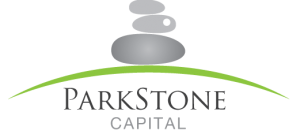The rate of inflation began the year 2019 dipping to its lowest since January, 2013 when the inflation rate was reported at 8.8%. After a marginal rise in the rate of inflation in December, 2018, the consumer price index fell by 40 basis points (bps) from 9.4% to 9.0% in January, 2019. This significant drop in the inflation rate clearly affirms an earlier assertion by the governor of the Bank of Ghana (BoG) that “immediate risks to the disinflation path are well contained.” Year-on-year the rate of inflation fell by 130 bps from a reported rate of 10.3% in January, 2018.
The rates of inflation largely remained in the single digits through most part of 2018 in line with the BoG’s medium-term inflation target band of 8.0% ± 2.0%. The latest reading in the consumer price index is on course to meeting the government’s projected end-period inflation target of 8% if the disinflationary trend continues in the rest of the year.
According to data from the Ghana Statistical Service (GSS), the drop came on the back of general price stability in the food and non-food inflation basket after both recorded significant drops in their respective rates of inflation.
The Food and Non-alcoholic beverages group recorded a year-on-year inflation rate of 8.0%, down by 70 bps from the group’s reported rate of 8.7% in December, last year. The main downward price driver in the category was ‘cereals & cereals products’ which fell from 6.5% in December, 2018 to 4.5% in January. Four sub-groups, including ‘coffee, tea & cocoa’ at 12.4% were above the groups inflation rate while seven sub-groups, including ‘sugar, jam & honey’ at 5.9% posted rates below the groups reported rate.
The inflation rate for the non-Food and alcoholic group also weakened by 30 bps from 9.8% in December, 2018 to 9.5% in January. The major downward price driver for this group was ‘health’ sub-group which decreased from 6.4% in December to 5.3% in January. Five sub-groups, including ‘transport’ at 13.6% recorded rates higher the group’s inflation rate and six other sub-groups, including ‘housing & utilities’ at 2.9% also recorded rates below the group’s inflation rate.
At the regional level, Upper West region recorded the highest inflation with a rate of 10.8% while Upper East region recorded the lowest at a rate of 7.7%.
It is expected that as the on-going depreciation of the Ghanaian Cedi coupled with crude oil price increases on the world market poses a medium to long-term risk to the inflation outlook, the Monetary Policy Committee (MPC) of the BoG would take a cautious stance in its future policy rate announcements.

